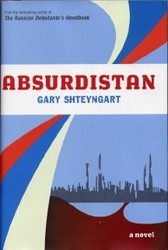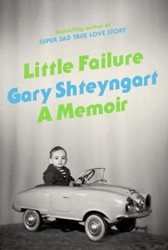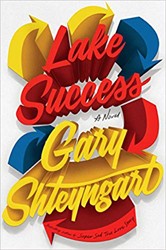Gary Shteyngart’s novel, The Russian Debutante’s Handbook, follows in the tradition of novels such as Henry Roth’s masterpiece, Call It Sleep. Each is masterfully written, integrating believable historic elements with fictionalized stories that give insight into the adaptations of an immigrant community to life in America. Shteyngart’s work is long overdue. The collapse of the Iron Curtain brought a massive Russian immigration to America, thirsting to benefit from the freedoms offered here both educationally and financially. The impact of this sizable community on life in New York is worthy of documentation and romanticisation. We track the evolution of Vladimir Girshkin from humdrum clerk in an immigrant absorption center on New York’s Lower East Side, to zany con man back with the ex-patriot community in Prava. As East and West intersect, characters appear and reappear, some humorous, some humdrum and some mafiosa quality, wandering through the pages of the novel and through the ever evolving life of our variably humorous and melancholy hero. Through his work at the absorption center, Vladimir encounters an eccentric Russian war hero whose best friend is an electric fan. This event literally blows Vladimir off his boring life course and his mechanical sexual relationship with his girlfriend Challah into the adventurous life of a pyramid scheme promoter whose scheme is, as are the rest of Vladimir’s encounters, brilliant, crazy and maturing. — 2002/2003 Judges for National Jewish Book Award in Fiction
Join a community of readers who are committed to Jewish stories
Sign up for JBC’s Nu Reads, a curated selection of Jewish books delivered straight to your door!





